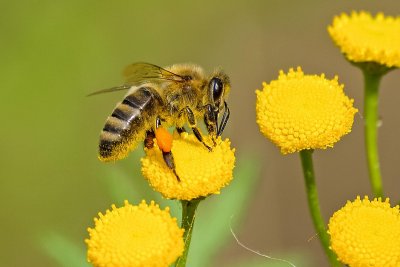Farming practices which balance the needs of the land with those of people have a huge part to play in safeguarding food security, a major new study has found. It found that agroecology – food production that makes the best use of nature’s goods and services while not damaging precious resources – can help maintain agricultural productivity.
The researchers reviewed evidence for agroecological practices including processes that maintain closed cycles, using on-farm resources to limit inputs and reduce waste.
They also studied the use of legumes (peas, beans, etc.) for enhancing soil fertility, cover crops, minimum tillage, the use of beneficial insects to control pests and agroforestry.
The new study was commissioned by the inter-agency Land Use Policy Group (LUPG) and funded by Scottish Natural Heritage and Natural Resources Wales.
It was undertaken by the Organic Research Centre with the Game and Wildlife Conservation Trust.
It found that:
- Productivity can be maintained, or even increased in some cases, although in organic farming yields might reduce – though more human labour can create employment;
- Agroecological practices and systems can contribute to greater energy efficiency and lower greenhouse gas emissions;
- Business profits can be maintained or increased through more efficient input use;
Natural resources which support agricultural production, like soil, water and biodiversity, can be nurtured.
Ruth Jenkins, chair of LUPG, said: “Agroecology can form an integral part of sustainable intensification, although there are a number of barriers hindering the wider adoption of this kind of approach, in particular those relating to knowledge exchange.
“Clearly, further work is required to improve our understanding of the opportunities for agroecological systems and practices to contribute to sustainable intensification - and for these to be more widely adopted on farms.”
Professor Nic Lampkin, director of the Organic Research Centre, said: “The challenge for sustainable intensification is how we can improve productivity and environmental performance in a way which is financially rewarding for farmers and affordable for consumers.
“Unlike many technological solutions, there is limited commercial interest in developing and promoting agroecological approaches, which rely more on farmer knowledge and skills. New approaches are therefore needed to support research, innovation and knowledge exchange on agroecological approaches if the potential is to be realised in practice.”
Claudia Rowse, SNH’s head of rural resources, said: “We hope that this report will contribute to the debate about the fundamental challenges we face of increasing production while respecting natural resources.
“Many farmers already practice a range of agro-ecological approaches including integrated crop management and organic farming. What this report sets out is clear evidence about how higher environmental standards can be delivered alongside improved productivity.”
Published Monday 22 June 2015
Sustain: Sustain The alliance for better food and farming advocates food and agriculture policies and practices that enhance the health and welfare of people and animals, improve the working and living environment, enrich society and culture and promote equity.





